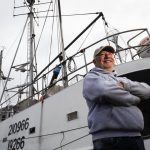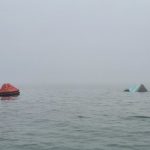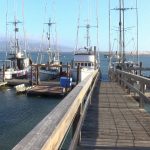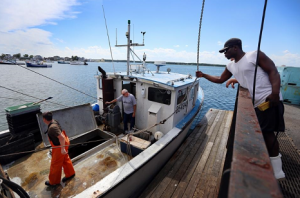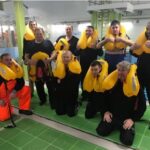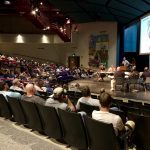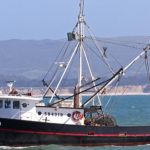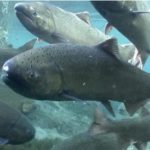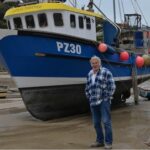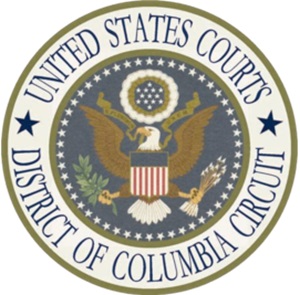 A U.S. appeals court on Monday appeared open to upholding a federal rule requiring commercial fishermen to fund a program to monitor for overfishing of herring off New England’s coast even after the U.S. Supreme Court in that same case issued a landmark ruling curbing agencies’ regulatory power. A three-judge panel of the U.S. Court of Appeals for the District of Columbia Circuit, during oral arguments, weighed the impact of the U.S. Supreme Court’s June decision, opens new tab to scrap a 40-year-old legal doctrine that had required courts to defer to agencies’ interpretations of ambiguous laws they administer. The 6-3 conservative majority U.S. Supreme Court nixed the doctrine, known as “Chevron deference,” after taking up an appeal by several commercial fishing companies of the D.C. Circuit panel’s 2-1 ruling in August 2022, opens new tab that had relied on the doctrine to uphold the fishing rule. more, >>CLICK TO READ<< 07:03
A U.S. appeals court on Monday appeared open to upholding a federal rule requiring commercial fishermen to fund a program to monitor for overfishing of herring off New England’s coast even after the U.S. Supreme Court in that same case issued a landmark ruling curbing agencies’ regulatory power. A three-judge panel of the U.S. Court of Appeals for the District of Columbia Circuit, during oral arguments, weighed the impact of the U.S. Supreme Court’s June decision, opens new tab to scrap a 40-year-old legal doctrine that had required courts to defer to agencies’ interpretations of ambiguous laws they administer. The 6-3 conservative majority U.S. Supreme Court nixed the doctrine, known as “Chevron deference,” after taking up an appeal by several commercial fishing companies of the D.C. Circuit panel’s 2-1 ruling in August 2022, opens new tab that had relied on the doctrine to uphold the fishing rule. more, >>CLICK TO READ<< 07:03Tag Archives: Opinion
“A MAN IS ONLY AS GOOD AS HIS WORD” By Jim Lovgren
 When Donald Trump ran for election in 2024, to recapture the Presidency that he lost in the 2020 elections, many people voted for him because he promised to stop offshore wind projects on day one. We are still waiting. Granted, he promised to also end the Ukraine war on day one, but people are still dying there every day. Politicians say many things when they are running for office, and voters must distinguish between reality and fantasy regarding a politician’s promises. In the case of the Ukraine war, I think everybody took Donald’s “end the Ukraine war on day one”, with a grain of salt, as this war is complex in its causes, participants, and the interwoven economic and international politics’ driving it. We can forgive him for his campaign bluster. When it comes to his promise to end offshore wind on day one, well that’s another story. more, >>CLICK TO READ<< 06:55
When Donald Trump ran for election in 2024, to recapture the Presidency that he lost in the 2020 elections, many people voted for him because he promised to stop offshore wind projects on day one. We are still waiting. Granted, he promised to also end the Ukraine war on day one, but people are still dying there every day. Politicians say many things when they are running for office, and voters must distinguish between reality and fantasy regarding a politician’s promises. In the case of the Ukraine war, I think everybody took Donald’s “end the Ukraine war on day one”, with a grain of salt, as this war is complex in its causes, participants, and the interwoven economic and international politics’ driving it. We can forgive him for his campaign bluster. When it comes to his promise to end offshore wind on day one, well that’s another story. more, >>CLICK TO READ<< 06:55
COMMENT: Dismiss the ‘let’s ban it’ mindset
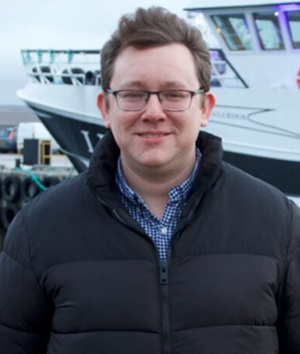 Sadly, we live in censorious times, when tolerance for differing viewpoints, activities, words even, is sometimes non-existent. You can be ostracized, cancelled, or subject to a raid by several police officers at the crack of dawn, depending on what you’ve done or said. Now I’m not suggesting for a moment that the Scottish government ever thought of an early-morning swoop by Scotland’s finest on the offices of Shetland Fishermen’s Association. But the recent revelation that, prior to a meeting with us and our members, First Minister John Swinney was told by his minders to avoid using the phrase “spatial squeeze” demonstrates that the “let’s ban it” mindset swirls around the corridors of St Andrew’s House like a miasma on a cold, still Edinburgh night. Do they compare notes with the anti-fishing environmental lobbyists? By Daniel Lawson. more, >>CLICK TO READ<< 10:01
Sadly, we live in censorious times, when tolerance for differing viewpoints, activities, words even, is sometimes non-existent. You can be ostracized, cancelled, or subject to a raid by several police officers at the crack of dawn, depending on what you’ve done or said. Now I’m not suggesting for a moment that the Scottish government ever thought of an early-morning swoop by Scotland’s finest on the offices of Shetland Fishermen’s Association. But the recent revelation that, prior to a meeting with us and our members, First Minister John Swinney was told by his minders to avoid using the phrase “spatial squeeze” demonstrates that the “let’s ban it” mindset swirls around the corridors of St Andrew’s House like a miasma on a cold, still Edinburgh night. Do they compare notes with the anti-fishing environmental lobbyists? By Daniel Lawson. more, >>CLICK TO READ<< 10:01
Russia’s ongoing war on Alaska fishermen
 These are tough times for Alaska’s fishermen, and Russia is a primary cause. During his recent confirmation hearing, Commerce Secretary Howard Lutnick joked with Alaska Sen. Dan Sullivan about the need to counter “communist fish.” In reality, the future of our entire industry could hinge on whether Secretary Lutnick succeeds. For more than a decade, the Kremlin has been implementing policies that take direct aim at Alaska’s fishing sector. In 2014, Russia banned U.S. seafood imports, choking off a $60 million market for Alaska fishermen, with pink salmon roe hit especially hard. In direct response, ex-vessel prices for pink salmon declined from $0.42 per pound to $0.23 per pound in 2015. By Matt Alward. more, >>CLICK TO READ<< 07:18
These are tough times for Alaska’s fishermen, and Russia is a primary cause. During his recent confirmation hearing, Commerce Secretary Howard Lutnick joked with Alaska Sen. Dan Sullivan about the need to counter “communist fish.” In reality, the future of our entire industry could hinge on whether Secretary Lutnick succeeds. For more than a decade, the Kremlin has been implementing policies that take direct aim at Alaska’s fishing sector. In 2014, Russia banned U.S. seafood imports, choking off a $60 million market for Alaska fishermen, with pink salmon roe hit especially hard. In direct response, ex-vessel prices for pink salmon declined from $0.42 per pound to $0.23 per pound in 2015. By Matt Alward. more, >>CLICK TO READ<< 07:18
Opinion: We need science-advice reform at Fisheries and Oceans Canada
 It took months of meetings, written requests and public pressure to receive an official response from Fisheries and Oceans Canada (DFO) to a 1.5-year-long wait for a request related to a widely condemned DFO report. This report found, contrary to mountains of peer-reviewed evidence, that infestations of sea lice on open-net salmon farms do not influence numbers of lice on wild salmon. Our appeal was simple: For the report’s authors to share the data used to reach their conclusion, to enable us to reproduce the analysis—a fundamental principle of modern science. The eventual response? A data sheet with much of the key data removed. more, >>CLICK TO READ<< 15:30
It took months of meetings, written requests and public pressure to receive an official response from Fisheries and Oceans Canada (DFO) to a 1.5-year-long wait for a request related to a widely condemned DFO report. This report found, contrary to mountains of peer-reviewed evidence, that infestations of sea lice on open-net salmon farms do not influence numbers of lice on wild salmon. Our appeal was simple: For the report’s authors to share the data used to reach their conclusion, to enable us to reproduce the analysis—a fundamental principle of modern science. The eventual response? A data sheet with much of the key data removed. more, >>CLICK TO READ<< 15:30
Court open to upholding US fishing monitor rule even without ‘Chevron’ doctrine
 A U.S. appeals court on Monday appeared open to upholding a federal rule requiring commercial fishermen to fund a program to monitor for overfishing of herring off New England’s coast even after the U.S. Supreme Court in that same case issued a landmark ruling curbing agencies’ regulatory power. A three-judge panel of the U.S. Court of Appeals for the District of Columbia Circuit, during oral arguments, weighed the impact of the U.S. Supreme Court’s June decision, opens new tab to scrap a 40-year-old legal doctrine that had required courts to defer to agencies’ interpretations of ambiguous laws they administer. The 6-3 conservative majority U.S. Supreme Court nixed the doctrine, known as “Chevron deference,” after taking up an appeal by several commercial fishing companies of the D.C. Circuit panel’s 2-1 ruling in August 2022, opens new tab that had relied on the doctrine to uphold the fishing rule. more, >>CLICK TO READ<< 07:03
A U.S. appeals court on Monday appeared open to upholding a federal rule requiring commercial fishermen to fund a program to monitor for overfishing of herring off New England’s coast even after the U.S. Supreme Court in that same case issued a landmark ruling curbing agencies’ regulatory power. A three-judge panel of the U.S. Court of Appeals for the District of Columbia Circuit, during oral arguments, weighed the impact of the U.S. Supreme Court’s June decision, opens new tab to scrap a 40-year-old legal doctrine that had required courts to defer to agencies’ interpretations of ambiguous laws they administer. The 6-3 conservative majority U.S. Supreme Court nixed the doctrine, known as “Chevron deference,” after taking up an appeal by several commercial fishing companies of the D.C. Circuit panel’s 2-1 ruling in August 2022, opens new tab that had relied on the doctrine to uphold the fishing rule. more, >>CLICK TO READ<< 07:03Anderson: Offshore wind risks outweigh exaggerated rewards
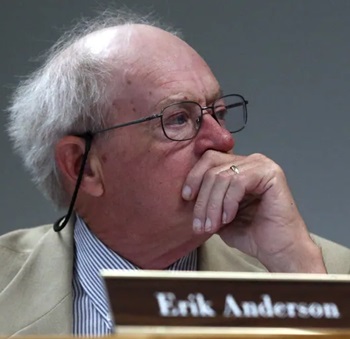 A recently published article referencing the upcoming sale/lease of 827,000 acres of area in the Gulf of Maine to developers for offshore wind turbines should not be passed over lightly. This sale/lease event will take place on Oct. 29, 2024, in a process where developers will bid on eight sites within the 827,000 acres. The article further reported on state Sen. David Watters’ involvement and advocacy for this development as a panacea for our energy needs. Truth be told, this is not as accurate as it appears as offshore wind poses more of an environmental threat than remedy when one investigates the details. The fishing industry coastwide has expressed their legitimate concerns on a variety of issues, and more and more of the general public is now expressing their skepticism, as they should. more, >>CLICK TO READ<< 15:33
A recently published article referencing the upcoming sale/lease of 827,000 acres of area in the Gulf of Maine to developers for offshore wind turbines should not be passed over lightly. This sale/lease event will take place on Oct. 29, 2024, in a process where developers will bid on eight sites within the 827,000 acres. The article further reported on state Sen. David Watters’ involvement and advocacy for this development as a panacea for our energy needs. Truth be told, this is not as accurate as it appears as offshore wind poses more of an environmental threat than remedy when one investigates the details. The fishing industry coastwide has expressed their legitimate concerns on a variety of issues, and more and more of the general public is now expressing their skepticism, as they should. more, >>CLICK TO READ<< 15:33
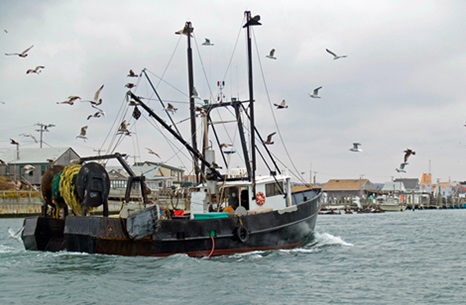
OPINION: Reel them in – Regional fisheries councils violate constitution and hurt accountability
That is the position in which many fishermen find themselves. They share a desire for sustainable fisheries and support some of the federal efforts at regulation. But they oppose certain federal water catch limits and allocations between commercial and recreation sectors that are set by regional fishery management councils made up of members who aren’t accountable through elections or to elected officials. Pacific Legal Foundation is representing these individuals and small businesses in courts around the country, making what we think is a simple argument based on the text and purpose of the Constitution. Specifically, that it requires that executive branch officials with significant authority be appointed by the president or a member of his cabinet. more, >>CLICK TO READ<< 06:40
Opinion – Justice Gorsuch’s book of fish tales
 Supreme Court Justice Neil M. Gorsuch worries about big government. About agencies that overreach and infringe the rights of unwary and unsophisticated individuals. About using the overwhelming force of criminal law to bludgeon relatively minor wrongdoers. About the federal government supplanting the power of state and local governments that are closer to the needs of their citizens. If “Over Ruled” has a hero and heroine, they are John and Sandra Yates, a Florida couple whose story is threaded through its pages. Chapter 1 opens with the harrowing tale of Sandra Yates doing laundry one morning in 2010 when “seven agents in bulletproof vests, hands primed on holstered guns,” approached her Anna Maria Island bungalow. more, >>CLICK TO READ<< 08:54
Supreme Court Justice Neil M. Gorsuch worries about big government. About agencies that overreach and infringe the rights of unwary and unsophisticated individuals. About using the overwhelming force of criminal law to bludgeon relatively minor wrongdoers. About the federal government supplanting the power of state and local governments that are closer to the needs of their citizens. If “Over Ruled” has a hero and heroine, they are John and Sandra Yates, a Florida couple whose story is threaded through its pages. Chapter 1 opens with the harrowing tale of Sandra Yates doing laundry one morning in 2010 when “seven agents in bulletproof vests, hands primed on holstered guns,” approached her Anna Maria Island bungalow. more, >>CLICK TO READ<< 08:54

An Optimist’s view: Death of the Chevron Deference
My name is David Goethel. I am a 55 year plus commercial fisherman, research biologist and former fishery manager. As author of Endangered Species/Chronicles of A new England Fisherman I discuss these topics and a lawsuit I filed in 2015 with the legal group Cause of Action over the legal concept known as Chevron Deference. Most people believe Congress writes laws, the Executive Branch carries out those laws and the Judicial Branch interprets and clarifies whether aspects of those laws are Constitutional and correctly applied. It turns out under a doctrine called “Chevron Deference” the regulatory bureaucracy can deem a law unclear or ambiguous and create any regulation the agency decides it needs to carry out its bureaucratic function. Until this past Friday, the courts gave deference to the regulators as the “recognized experts” even though no proof is required and no test for ambiguity is applied. The Supreme Court overturned Chevron Friday saying they had “placed a tombstone on its grave”. Fishermen, including me, had sued saying that unelected regulators should not have this vast power over our lives. more, >>CLICK TO READ<< 20:18
Letter: Dear BOEM
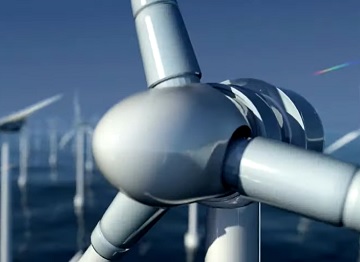 Your project of installing a wind power farm off the coast of Southern Oregon is in total disregard for the environment, economics, and people therein. The vibrations of the offshore turbines will alter the fishing grounds and the migration of whales, tuna, and salmon for years and destroy commercial fishing that feeds millions of people. The turbines will have to be in restricted waters. That will be followed by restricting the waters where the cables are laid (can’t have nets, anchors, et cetera dragged through). Next, your $$$moneymen will have to find land to bring the cabled power on shore thus trashing even more of the scenic coast of Oregon. And where will you house all the needed labor considering the critical housing shortage at this location? Confiscation via eminent domain perhaps? more, >>CLICK TO READ<< By Raymond J Van Eck 07:11
Your project of installing a wind power farm off the coast of Southern Oregon is in total disregard for the environment, economics, and people therein. The vibrations of the offshore turbines will alter the fishing grounds and the migration of whales, tuna, and salmon for years and destroy commercial fishing that feeds millions of people. The turbines will have to be in restricted waters. That will be followed by restricting the waters where the cables are laid (can’t have nets, anchors, et cetera dragged through). Next, your $$$moneymen will have to find land to bring the cabled power on shore thus trashing even more of the scenic coast of Oregon. And where will you house all the needed labor considering the critical housing shortage at this location? Confiscation via eminent domain perhaps? more, >>CLICK TO READ<< By Raymond J Van Eck 07:11
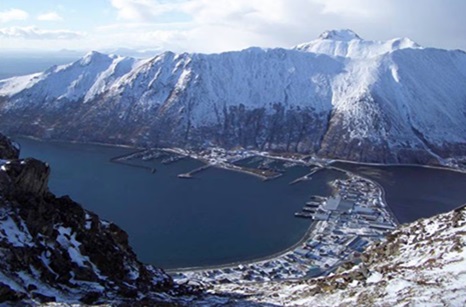
OPINION: Fighting for our lives in King Cove
I am a fisherman; one of my grandfathers was a fisherman and the other one was a lifelong employee of Peter Pan Seafoods. My father was a fisherman, my brother is a fisherman and my mother, for much of her working life, worked for Peter Pan. We live in the southwest Aleut community of King Cove. For my extended family and all the other families like mine, we rely upon our knowledge of the ocean, our skills in the harvesting of fish, and a fish processor that pays a fair price. At the end of each day, we enjoy the satisfaction of hard work paying off. As King Cove’s mayor, it hurts my heart to say that it has taken only a few short months for me to no longer recognize my world. Events have conspired to threaten our very existence. A collapse of our incomes, individually and citywide, the shock of realizing that municipal projects, many years in the making, may grind to a halt. more, >>CLICK TO READ<< 20:35
Fear, legacy and the Alaska seafood industry
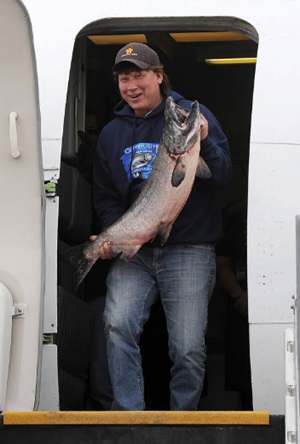 My journey began from a deep-rooted fear — the fear of watching a livelihood, passed through generations of commercial fishermen, slip through my fingers. Three decades ago, I was a young Copper River fisherman caught in the middle of a market crash. Farmed salmon had just entered the U.S., tanking prices for wild Alaska salmon. As a young commercial fisherman, fiercely proud of the salmon I caught, this shift turned my world upside down. At that moment, I made a pivotal decision — band with three other fishermen, three other fishermen, and wage a battle for the premium markets I felt Alaska salmon rightfully deserved. Spoiler alert: It’s been three decades, and we’re still fighting every day to compete. With experience, I’ve learned that my competition extends beyond other seafood; it’s beef, poultry and other proteins that occupy the “center of the plate.” In the face of market crises, conflicts, recessions, political turmoil and economic challenges, the burden I bear today mirrors the weight I carried in my 20s, but the challenges are now bigger and more complex. more, >>CLICK TO READ<< 21:41
My journey began from a deep-rooted fear — the fear of watching a livelihood, passed through generations of commercial fishermen, slip through my fingers. Three decades ago, I was a young Copper River fisherman caught in the middle of a market crash. Farmed salmon had just entered the U.S., tanking prices for wild Alaska salmon. As a young commercial fisherman, fiercely proud of the salmon I caught, this shift turned my world upside down. At that moment, I made a pivotal decision — band with three other fishermen, three other fishermen, and wage a battle for the premium markets I felt Alaska salmon rightfully deserved. Spoiler alert: It’s been three decades, and we’re still fighting every day to compete. With experience, I’ve learned that my competition extends beyond other seafood; it’s beef, poultry and other proteins that occupy the “center of the plate.” In the face of market crises, conflicts, recessions, political turmoil and economic challenges, the burden I bear today mirrors the weight I carried in my 20s, but the challenges are now bigger and more complex. more, >>CLICK TO READ<< 21:41
Maine lobstermen will not be scapegoated over right whale
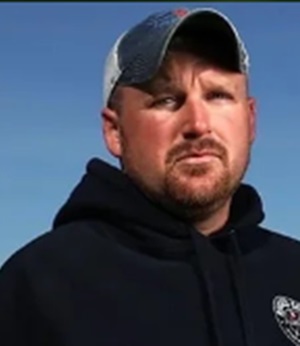 New England fishermen are bracing themselves for another salvo of regulation and activist pressure after the tragic entanglement death of a right whale that washed ashore on Martha’s Vineyard. While the future of our fisheries is uncertain, 2023 showed how much resilience and determination there is in our maritime communities. My organization – the New England Fishermen’s Stewardship Association – and our many partners are prepared to ward off any attempt to scapegoat Maine lobstermen for the declining population of the majestic right whale. Regulators and out-of-state agitators are together impugning one of the most sustainable fisheries in the world for right whale deaths. Their claims are baseless and contradicted by their own data. As agencies and NGOs ponder next steps, they might consider the fighting spirit this last year has showcased among fishermen. more, >>click to read<< by Dustin Delano 12:06
New England fishermen are bracing themselves for another salvo of regulation and activist pressure after the tragic entanglement death of a right whale that washed ashore on Martha’s Vineyard. While the future of our fisheries is uncertain, 2023 showed how much resilience and determination there is in our maritime communities. My organization – the New England Fishermen’s Stewardship Association – and our many partners are prepared to ward off any attempt to scapegoat Maine lobstermen for the declining population of the majestic right whale. Regulators and out-of-state agitators are together impugning one of the most sustainable fisheries in the world for right whale deaths. Their claims are baseless and contradicted by their own data. As agencies and NGOs ponder next steps, they might consider the fighting spirit this last year has showcased among fishermen. more, >>click to read<< by Dustin Delano 12:06
Sam Parisi asks, How Accurate is NOAA and NOAA Fishery Survey Science?
 The agency is not required to compare their results with other independent science. The unproven science may bring concern on the health of fish stocks the industry depends upon. Our Fishermen and Fishing Industry depend on sound science. We need a Magnuson Act Amendment which would require NOAA to compare their science with other independent scientific surveys before any restrictions are placed on, or allocation cuts are enacted. Thank you, Sam Parisi. (click here to comment) 07:22
The agency is not required to compare their results with other independent science. The unproven science may bring concern on the health of fish stocks the industry depends upon. Our Fishermen and Fishing Industry depend on sound science. We need a Magnuson Act Amendment which would require NOAA to compare their science with other independent scientific surveys before any restrictions are placed on, or allocation cuts are enacted. Thank you, Sam Parisi. (click here to comment) 07:22Commentary: Offshore wind foes push false info about whale deaths
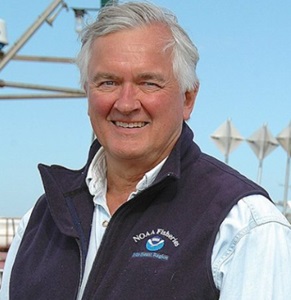 As the former former of New Bedford, regional administrator of NOAA Fisheries, and as president of the Board of the New Bedford Ocean Cluster, I know that commercial fishing and offshore wind can co-exist and thrive. But this requires honest communication about the real conflicts between wind and fishing that need science-based thinking, baseline and ongoing research, respectful listening, and collaborative problem solving. This is made so much more difficult when there is an ongoing disinformation campaign that distorts the facts, presents false information, and operates with motives that can’t be trusted and that are geared towards stopping projects rather than solving problems. more, >>click to read<< 07:14
As the former former of New Bedford, regional administrator of NOAA Fisheries, and as president of the Board of the New Bedford Ocean Cluster, I know that commercial fishing and offshore wind can co-exist and thrive. But this requires honest communication about the real conflicts between wind and fishing that need science-based thinking, baseline and ongoing research, respectful listening, and collaborative problem solving. This is made so much more difficult when there is an ongoing disinformation campaign that distorts the facts, presents false information, and operates with motives that can’t be trusted and that are geared towards stopping projects rather than solving problems. more, >>click to read<< 07:14
Opinion: The tragic mismanagement of bycatch in Alaska
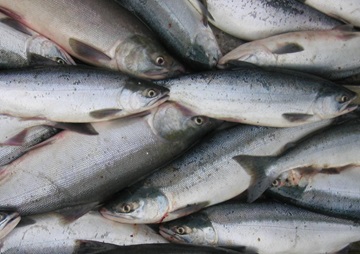 The commissioner of the Alaska Department of Fish & Game’s recent opinion piece on bycatch would make for good comedy if the topic wasn’t so serious. Doug Vincent-Lang extolled the North Pacific Fishery Management Council’s handling of bycatch in trawl fisheries off the coast of Alaska. As examples, he mentioned existing bycatch caps for chinook salmon and halibut bycatch measures that are not yet in effect. Other than that, here are the council “actions” he espouses. The council, of which he is a key member, has “initiated an analysis” concerning caps on chum bycatch, is “considering further fishing restrictions” related to crab in the Bering Sea and is “evaluating whether further protections are needed” for Tanner crab in the Gulf. He also notes that the council “support(s) further research” into the causes of the declines in these seminal Alaska fisheries stocks. >>click to read<< 12:29
The commissioner of the Alaska Department of Fish & Game’s recent opinion piece on bycatch would make for good comedy if the topic wasn’t so serious. Doug Vincent-Lang extolled the North Pacific Fishery Management Council’s handling of bycatch in trawl fisheries off the coast of Alaska. As examples, he mentioned existing bycatch caps for chinook salmon and halibut bycatch measures that are not yet in effect. Other than that, here are the council “actions” he espouses. The council, of which he is a key member, has “initiated an analysis” concerning caps on chum bycatch, is “considering further fishing restrictions” related to crab in the Bering Sea and is “evaluating whether further protections are needed” for Tanner crab in the Gulf. He also notes that the council “support(s) further research” into the causes of the declines in these seminal Alaska fisheries stocks. >>click to read<< 12:29
Opinion: Offshore wind, marine-life deaths by Carol Frazier
 Do you remember the line from “The Wizard of Oz” when Dorothy and her companions are on their way to Oz and are afraid of being attacked? The line was “Lions and tigers and bears – oh my! Lions and tigers and bears – oh my!” Well, I have revised that to “Murphy and Carney and Moore – oh my!” referring to the three Democrat governors of New Jersey, Delaware and Maryland who are absolutely determined to go full steam ahead on offshore wind, no matter what evidence of harm to wildlife and commercial fishing and the economy is presented. I read Doug Miller’s letter to the editor of Aug. 11 with interest, also. Regarding Mr. Miller’s statement that concern about whale deaths is nonsense, I beg to differ. >click to read< 08:54
Do you remember the line from “The Wizard of Oz” when Dorothy and her companions are on their way to Oz and are afraid of being attacked? The line was “Lions and tigers and bears – oh my! Lions and tigers and bears – oh my!” Well, I have revised that to “Murphy and Carney and Moore – oh my!” referring to the three Democrat governors of New Jersey, Delaware and Maryland who are absolutely determined to go full steam ahead on offshore wind, no matter what evidence of harm to wildlife and commercial fishing and the economy is presented. I read Doug Miller’s letter to the editor of Aug. 11 with interest, also. Regarding Mr. Miller’s statement that concern about whale deaths is nonsense, I beg to differ. >click to read< 08:54
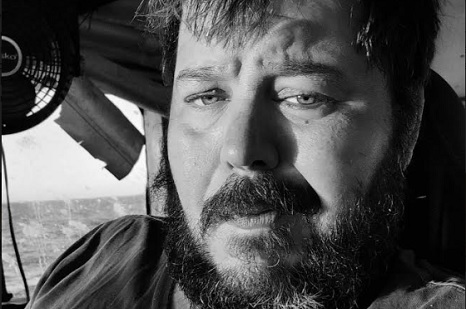
LEEMAN: Federal Regulators And Climate Alarmists Are Killing America’s Oldest, Most Iconic Industry
American fishermen are the most regulated in the world, and it’s driving experienced captains off the water and young people away from their homes in search of opportunities elsewhere. At 41, I’m one of the younger fishing boat captains in New England. I’m grateful Senator Susan Collins, R-Maine, met with me last week to discuss helping fishermen get a seat at the table with regulators. We who work the water, the same waters our families worked for generations, now find ourselves at the mercy of the “Faucis of fishing” — self-assured bureaucrats who sit behind desks with no sense of the harm they’re causing. >click to read< 07:53

Opinion: Mad Max, where are you now that we need you? By Joel Hovanesian
For decades, Richard Max Strahan has fought for and succeeded many times and was front and center in his quest to save the severely endangered right whales. He was a very outspoken critic of the commercial fisherman and the fishing industry in general, claiming that they were responsible for the dwindling number of whales along the Atlantic seaboard. Your actions and ideas have helped pave the way for many regulations that possibly helped this iconic animal, the jury’s still out on that. Regulations that cost millions of dollars to implement. Today, the right whales and all marine life for that matter are under assault from a much more sinister threat. Ocean wind farms. >click to read< 13:34
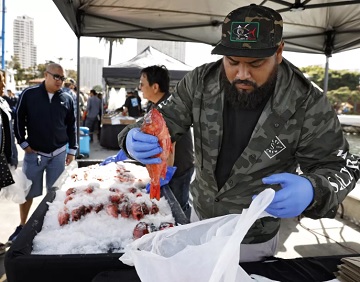
Biden needs to help California fishermen in our dispute over dangerous fish farms
When people think of California, they think of our coasts. Our vibrant ocean sustains a robust seafood industry, as well as many hospitality, tourism and recreation businesses. But in recent years, our coastal enterprises have faced a litany of challenges; pollution, climate change and development along the coast have made it difficult for independent businesses to survive. Now in 2023, another threat is looming: The National Oceans and Atmospheric Administration is scoping out Southern California as a new site for industrial-scale finfish farms. Last spring, NOAA identified 10 Aquaculture Opportunity Areas off the coast of Southern California. These areas are deemed ideal for offshore fish farms, despite the fact that two of them are in close proximity to a Superfund site where 500,000 barrels of the banned pesticide DDT were dumped. >click to read< 10:00
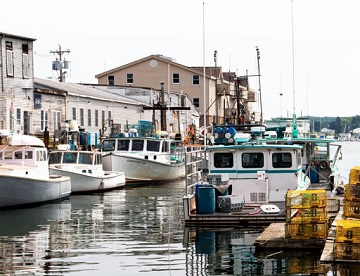
Opinion: How to Solve the Lobstermen vs Whalers Problem: Water Capitalism
The lobstermen and the whalers are at each other’s throats in Maine. The former need to use strong ropes to pull up their lobster traps from the ocean floor. The latter claim that this gear they use enmeshes their bread and butter, that is, whales, who are needlessly killed in this manner. It would be difficult to name other industries, or commercial interests that contended against one another in any such manner. Yes, those producing peas and those producing carrots compete against each other, as do bicycles and fish, shoes and socks. But none of them are suing the others over infringement of their territory. >click to read< 09:16

Cod: The New England Council has proposed a plan to restore cod by 2033
What that will mean is our fishing fleet would have to reduce their catch by whatever the council thinks will be helpful. Over the years NOAA has made reductions on cod and other species, based on their studies and science. Under law, they do not have to compare their findings. We need to update the Magnuson–Stevens Act that would require them to compare data before making restrictions on species of fish. Put this aside, if we want to bring back the cod, no fishing vessel can land cod over the next ten years. Great! So be it. Pay our fisherman to not catch cod. Farmers have a Farm Bill and pay farmers not to grow certain crops. So why can’t our government create a Fish Bill to do the same for the U.S. fishing industry? This could be paid for by increasing the duty on imported fish. This is a Win-Win solution. Sam Parisi, Gloucester, Mass. 19:27
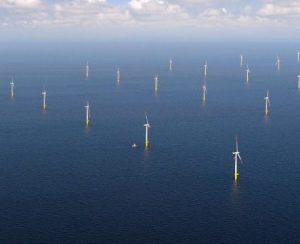
Opinion: Who owns the oceans?
There is a question that has been asked in our household for years. For us, it’s a personal question. Generations of family fisherman have been affected by the decisions of others, some known and many invisible. We have had to sit on the sidelines watching the demise of our industry while power brokers, politicians, and the money hungry chart the course when we are not even invited to the table. Now we find ourselves watching the final chapters play out, knowing that we don’t even have a role. The high jacking of our oceans didn’t happen overnight. The slow, methodical process has lined the pockets of the politicians at every level of government. Working in conjunction with private industry and environmentalists they have driven our beloved industry past the brink and left fisherman with no place left to fish. >click to read< 09:59
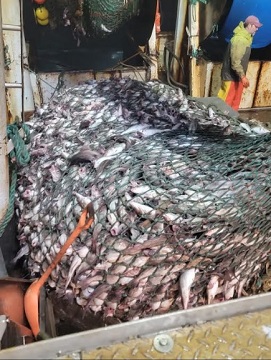
Jerry Leeman: So, let’s plug in what we know.
So, let’s run a logical thought, based on what our governments assumption on fish stocks is, with what we know. NOAA says there is nothing wrong with the biomass of white hake, but they cannot find adolescent hake. Well ask any lobstermen along the shorelines, they are seeing abundance of juvenile hake and cod in their traps. Imagine Lobstermen and inshore fishermen across a vast area all saying the same thing? NOAA says there’s nothing wrong with the biomass of haddock but same thing, they can’t find small fish. Well, what do we know?!! >click to continue reading< 08:33
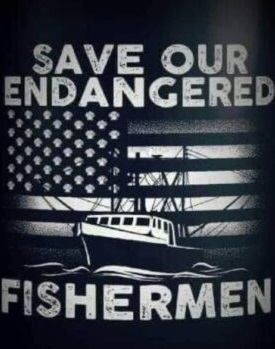
All for one and one for all – With Jerry Leeman
Well, if NOAA goes through with these cuts this coming year to groundfish stocks I’m afraid there won’t be a fishing season next year. They have created choke species thru faulty assessments. I don’t know why I say assessments because they really haven’t done enough to make any logical cuts to any stock. To my family and friends who are lobstermen. You will watch the bait prices double overnight once the last groundfish boat is done. No more bait will be landed thru the groundfish efforts. That’s right no redfish racks, no hard bait and no skates. This will happen. I’ll do my best to argue everyone’s circumstances and the errors of their data and sampling methods using on the job experience offshore for 14 years at sea in the last 21 years. The entire groundfish fleet Captains are united in this argument that the data is corrupt and wrong in many ways. All offshore fishermen spend more time trying to avoid fish due to the made-up choke species brought to us by bad science and lack of know how. >click to continue reading<, 15:03
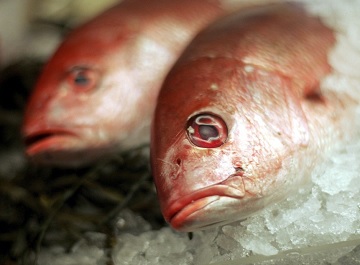
Catch Shares Enable Wealthy Landlords to Gobble Up Local Fisheries
A recent investigative report has reignited public discussion over catch shares, a controversial approach to fisheries management that privatizes the rights to fish. The investigation exposed how Blue Harvest Fisheries, owned by a billionaire Dutch family, became the largest holder of commercial fishing rights in New England, benefiting from lax antitrust regulations and pilfering profits from the local fishermen who work under them. As a commercial fisherman in Mississippi, I know these dynamics go well beyond New England. Here in the Gulf of Mexico, private equity firms and other large investors have come in and gobbled up the rights to fish, driving up the cost of fishing access and making it prohibitively expensive for fishermen like me to harvest fish in our own backyards. >click to read< 07:55

Let’s save Maine’s lobster industry from death by regulation
If you’ve ever been to the state of Oregon – home of the “other” Portland – you only need to drive south of the big city to see the human impact of overzealous conservationism. This is the habitat of the Spotted Owl, whose inclusion to the endangered species list in 1990 shut down the timber industry there, eliminating 32,000 jobs in the process. Something eerily similar is about to happen to iconic Maine lobstermen in an effort to save the Right Whale. >click to read< 08:07
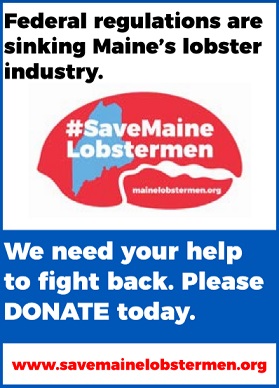
Opinion: Fighting whale-safe gear rules won’t ‘save Maine lobstermen’
The Maine Lobstermen’s Association has stepped up an advocacy campaign to “#Save Maine Lobstermen.” They and their political allies claim that new regulations to make fishing gear safer for right whales will put the lobster fishery out of business. Where is the evidence? Massachusetts and Canadian lobster fisheries are already investing in changes that the Maine Lobstermen’s Association claims are impossible. Indeed, Canada has invested $20 million to transition its trap fisheries to whale-safe gear by 2023. Digging in for a fight means that Maine lobstermen fall behind the competition. >click to read< 10:03






 I have long followed closely the development of issues related to fisheries, their management, scientific advice, political actions, and the behaviour of those who hold fishing rights. One could write books and produce documentaries on this topic. In fact, it might even warrant dedicated research, given the significant impact it has had on the development of Icelandic society over the past decades. This document focuses solely on the advice provided, its assumptions, and its outcomes. Magnús Jónsson – In 1957, two British fisheries scientists, Ray Beverton and Sidney Holt, proposed a hypothetical model (the BH model) that attempted to calculate the expected number of fish in a particular cohort based on the number of individuals in the previous generation. Although variations of this model (such as the Ricker model) have been used in fisheries science since then, the BH model remains today in use to describe the relationship between recruitment and the size of the spawning stock. Photos,
I have long followed closely the development of issues related to fisheries, their management, scientific advice, political actions, and the behaviour of those who hold fishing rights. One could write books and produce documentaries on this topic. In fact, it might even warrant dedicated research, given the significant impact it has had on the development of Icelandic society over the past decades. This document focuses solely on the advice provided, its assumptions, and its outcomes. Magnús Jónsson – In 1957, two British fisheries scientists, Ray Beverton and Sidney Holt, proposed a hypothetical model (the BH model) that attempted to calculate the expected number of fish in a particular cohort based on the number of individuals in the previous generation. Although variations of this model (such as the Ricker model) have been used in fisheries science since then, the BH model remains today in use to describe the relationship between recruitment and the size of the spawning stock. Photos, 



























